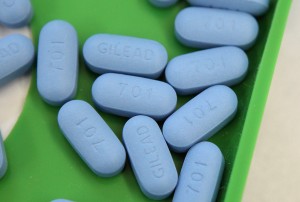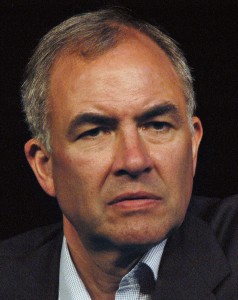What do the new studies show?
There have been several studies that have come at the same question. If a person is at risk of getting infected, does taking a medicine like Truvada prevent infection in somebody who's not infected to start with?
Before these two studies, there were two others, and one showed the medication did seem to work, the other didn't. These two new studies answer an important question; they were done in couples, one of whom was positive at the start of the study, and one who was negative. The HIV-negative person took the medicine; these studies both showed a very striking effect in decreasing the transmission in those HIV-negative people who were taking the medicine.
How definitive would say these studies were?
There's a meeting that I and many of my colleagues are going to in Rome that starts over the weekend that will be focused on these studies. I think we'll come back with a lot more detail.
But of these studies, one had nearly 5,000 couples, the other had about 1200 couples. Both were done in Africa. Both remarkably found almost the same results. In one, Truvada had about a 73% reduction in transmission, the other one had about a 63% reduction in transmission. In big studies like that, those numbers really look very much the same to us. It says that even in a situation where some people will take the drugs exactly as they're supposed to in the study and others won't, even with that the drug was remarkably effective. This is the kind of effect we might expect from a very good vaccine. So this is big news.
What is the regimen for taking the drug in terms of it being a prophylactic?
It's a once a day drug, it's a pill. The recommendation is that if you're negative and in one of these relationship where your partner is positive, then you just take it every day. So it's a very straightforward treatment.
What are the side effects if any that were found?
We haven't seen the detailed results from the study yet. We'll hear a lot more about it in Rome. But we know these drugs very well. We've been using them for a very long time. In people with HIV infection, where Tenofavir, which is one of the parts of Truvada, it's well tolerated but can cause some kidney trouble in a small percent of people and can cause some bone loss in a small percent of people. So we'll be watching the results closely because these are people who are healthy and uninfected, so you don’t' want to subject them to a lot of side effects. But we know these drugs very well, and I don't expect we're going to be surprised by what we hear.
Might there be behavioral considerations in terms of health people following the drug regimen?
We'll find out more in Rome, but what we've found in other studies, especially in people that are uninfected, is that some people decide just to not take the pills. What we've seen is that when people take the pills as prescribed, it works incredibly well. In some studies, it looked close to 100% effective. I think what we'll find in these studies is that a big reason for the "only" 70% effectiveness, is probably a lot of those people weren't taking the drugs or not taking them correctly.
Are there any other medications taken by healthy people as a prophylactic?
Aspirin, perhaps, for people who want to prevent cardiac disease. Or the better example is when I go to Africa, I take a drug called Malerone, which is a malaria prophylaxis. So this isn't a new concept at all.

